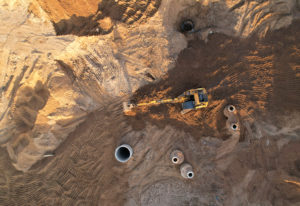
WASHINGTON, District of Columbia, United States – Amy Andryszak, President & CEO of INGAA, released the following statement in response to the Biden Administration’s release of its updated permitting reform priorities:
“The Interstate Natural Gas Association of America (INGAA) appreciates the Biden Administration’s support for and prioritization of permitting reform legislation that will enable our country to build the energy infrastructure necessary to meet growing energy demand. However, while President Biden and Secretary Granholm have both, at times, acknowledged the prolonged need for natural gas as part of the energy mix to support reliability and affordability while contributing to emissions reductions, we were disappointed to see almost no mention of natural gas or its related infrastructure in the Administration’s new Permitting Reform Priorities Fact Sheet.
“According to the U.S. EIA, energy use across the globe is going to increase 50% by 2050, and meeting the energy demands of the world’s largest and most complex economy will require a diverse set of fuel types and sources to create resiliency in the system and ensure reliability. One of those fuel types must be natural gas, which accounted for a 33% decrease in U.S. greenhouse gas emissions between 2005 and 2019 and which, according to research from the National Bureau of Economic Research, enables the increased deployment of renewable sources of power.
“Natural gas is key to lowering emissions and ensuring reliability for renewable forms of energy. Successful bipartisan legislation which enables robust investment in America’s energy infrastructure must include statutory reforms to accelerate the development of all forms of energy, including natural gas, needed to ensure an affordable, reliable, clean energy future.”
###
INGAA represents the U.S. natural gas pipeline industry. INGAA’s members deliver clean, abundant, affordable natural gas throughout North America and operate approximately 200,000 miles of pipelines that serve as an indispensable link between natural gas producers and consumers.







